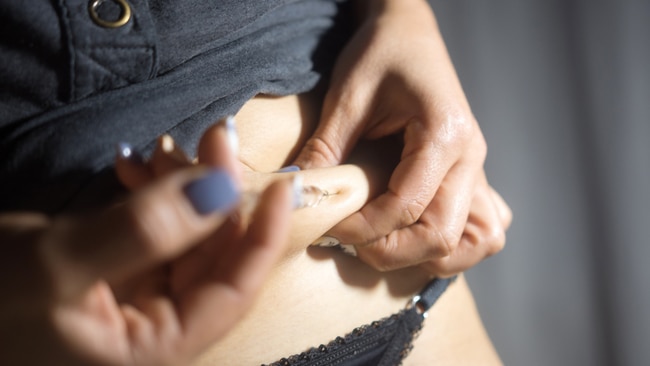Why egg freezing is all over social media right now
You're not imagining things

Lifestyle
Don't miss out on the headlines from Lifestyle. Followed categories will be added to My News.
The medical procedure involving doctors freezing and preserving unfertilized eggs for future use is popping up on Instagram and TikTok left, right and centre.
Depending on how the algorithms of social media skew for you, there’s a good chance that in recent times the amount of content relating to fertility and, more specifically, egg freezing appearing in your feed has increased dramatically.
On TikTok alone, there are over 100 million videos tied to #eggfreezingjourney, with people around the world choosing to lift the veil of privacy that previously shrouded fertility to share their experiences of daily hormone injections, specialist meetings, scans and retrieval processes.
“I really see egg freezing as a piece of the puzzle of advancing female equality in society,” Dr Raelia Lew, a Melbourne-based fertility specialist explains. She says that alongside long-term policy strategies like improving parental leave, making childcare more affordable and hopefully one day adding egg-freezing to Medicare, making fertility services more accessible and offering information freely through social media content enables people to make more informed decisions in the long run.
Like what you see? Sign up to our bodyandsoul.com.au newsletter for more stories like this.
“If you consider it an insurance policy, it’s an insurance policy against decisional regret of doing something versus having done nothing. There’s comfort in taking action rather than inaction because inaction is disempowering,” Lew says, adding, "And sometimes being proactive can help you feel like you’ve done everything you can to set yourself up for the best future.”
The surge in social media content correlates neatly with the increasing popularity of the procedure, which was introduced to the Australian market in 2012. Just over a decade later, the number of people undergoing egg freezing has grown by as much as 400 per cent in recent years.
But with one cycle setting a person back between $6000 and $12000, and multiple cycles often required, the content is proving divisive. On the one hand, the videos are just another step in demystifying fertility and normalising a multitude of options. On the other hand, though, there is a level of financial privilege associated with the process.
For 32-year-old writer and creative director Hannah McElhinney, documenting the process of her first round of egg freezing online has allowed her to share the nuts and bolts of the experience while also providing insight from a queer perspective that helps break down the heteronormative mould that often surrounds fertility.
Sharing daily updates on how she’s feeling and showing her girlfriend administering daily injections, McElhinney says normalising the experience for couples in same-sex relationships and demystifying the process itself has led to a lot of positive feedback and curiosity.
“The big thing that resonated with people is the process and how long it takes. People have asked me a lot of questions about cost and what’s involved and side effects. The other thing that people have wanted to know is how invasive it is,” she says.
While McElhinney says she’s still not entirely sure she wants to be a parent one day, the decision to freeze her eggs still makes sense given that she’s in a same-sex relationship. What’s more, a pre-existing health condition means she is eligible for Medicare’s partial rebate of $5,000, making the process substantially more affordable.
“The thing that sort of frustrates me is that a lot of people say, you know, ‘it’s not an insurance policy’. Not in a rude way but almost like, why would you do it? But for me, this process is always going to be in my future if I choose to go down that route of having a baby.”
In sharing the videos, she says, “I kind of wish there was more celebration of this science… I wanted to show the normality of it. My girlfriend gives me an injection and then we watch a movie or go to bed. The mundanity of it is important.”
Though some influencers have faced criticism for partnering with fertility clinics and sharing their egg-freezing experience as a paid or gifted partnership, Lew says eradicating the content altogether isn’t the answer either.
“It’s a little bit like the argument that not teaching people about contraception through pro-abstinence teaching will stop people from having sex before marriage, you know? We need to know what is available so we can think about it.”
Lew adds, “With every topic involving reproduction - whether it’s egg freezing, abortion, contraception or having babies - there’s always going to be lovers and haters, but I think it’s important that we acknowledge to some degree that what women do with their bodies is none of our business.”
Originally published as Why egg freezing is all over social media right now


